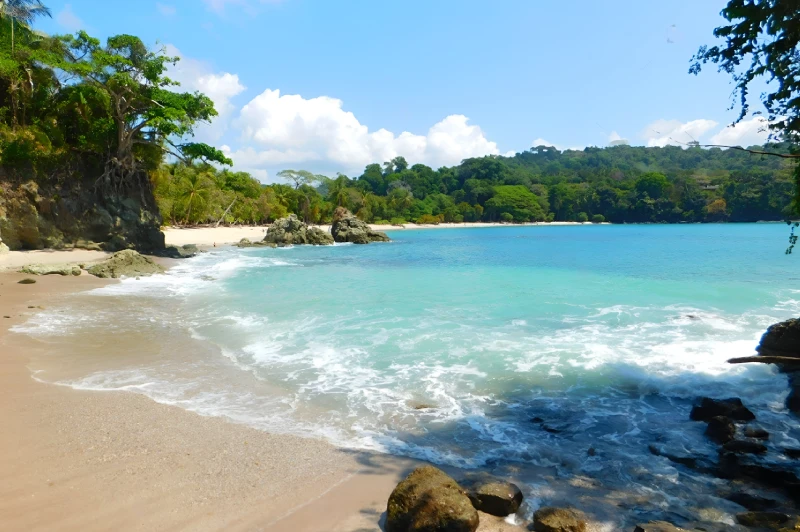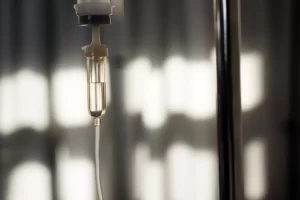Navigating the warm and humid climate of Quepos, Costa Rica, requires more than just a sense of adventure—it demands a keen awareness of one’s health, particularly hydration.
Recognizing the signs of dehydration is crucial for anyone exploring this vibrant area. Whether wandering through the national parks or relaxing on sunlit beaches, understanding how you can tell if you’re dehydrated helps ensure a safe and enjoyable experience in this tropical paradise.
The importance of staying hydrated: health and vitality benefits
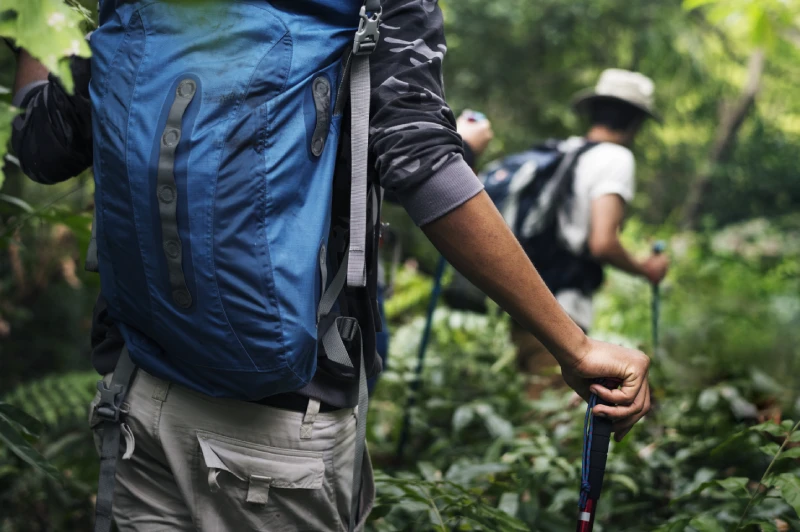
Hydration is crucial for maintaining overall health and well-being, particularly because it helps mitigate the signs of dehydration, which can be severe. Each cell in your body relies on water to function effectively. Water is essential for the absorption of nutrients, the removal of waste, and the completion of chemical reactions within the body.
Maintaining adequate hydration is also key for regulating body temperature. Through the processes of sweating and respiration, water dissipates heat, helping to cool the body during physical activity or in hot weather.
Proper hydration supports joint health by lubricating joints and cushioning them, which can prevent discomfort and reduce the risk of injuries. Additionally, water facilitates digestion and helps maintain regular bowel movements, thus preventing constipation.
Cognitive functions such as concentration, memory, and mood are significantly influenced by hydration levels. Even mild dehydration can lead to confusion, irritability, and reduced cognitive performance.
In terms of physical activity, staying hydrated is vital. Ignoring the early signs of dehydration can quickly lead to tiredness, decreased endurance, and impaired coordination, severely impacting athletic performance.
Finally, water plays a critical role in detoxification. It helps flush toxins from the body, particularly through the kidneys and liver, promoting better health and preventing various health issues.
How can you tell if you’re Dehydrated?
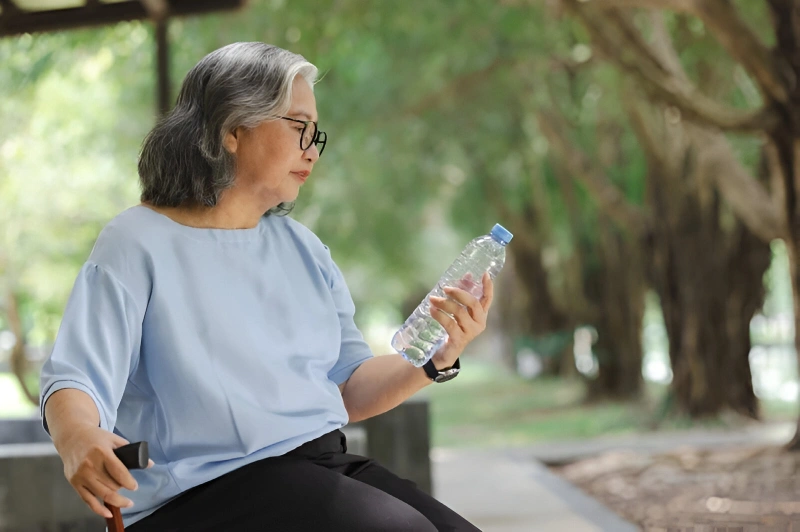
Dehydration is a common concern, especially in tropical environments like Quepos, Costa Rica, where high temperatures can lead to increased body fluid loss. Recognizing the signs of dehydration is crucial to prevent serious health complications. Here are some indicators to help you determine how you can tell if you’re dehydrated:
Reduced Skin Elasticity:
Also known as skin turgor, this involves pinching your skin (typically on the back of your hand) to see how quickly it returns to its normal position. Slower response times can indicate dehydration.
Sunken Eyes:
Dehydration can cause the eyes to look hollow and sunken, as the body diverts fluids away from non-essential areas to maintain function in vital organs.
Bad Breath:
Saliva has antibacterial properties, and reduced saliva production due to dehydration can lead to increased bacterial growth in the mouth, causing bad breath.
Muscle Cramps:
Dehydration affects electrolyte balance within the body, which can lead to involuntary contractions or spasms, commonly referred to as muscle cramps.
Irritability or Confusion:
Dehydration can affect your ability to think clearly. Symptoms can include confusion, irritability, or general mental fog.
Rapid Weight Loss:
Rapid and significant weight loss within a short time frame can be a result of losing significant fluid and not just body fat.
Recognizing mild signs of dehydration.
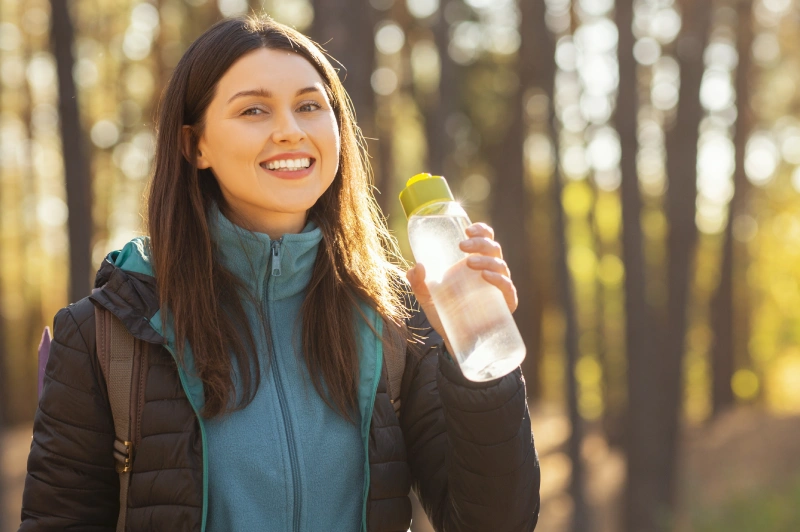
Mild dehydration might not seem urgent, but it can quickly escalate if not addressed. Being aware of the early signs of dehydration mild can help you take quick action to rehydrate. Here are the key indicators to watch for:
Slight Thirst: Even a mild feeling of thirst is an early sign of dehydration. It’s your body’s initial way of signaling a need for more fluids.
Dry or Sticky Mouth: A common sign of dehydration mild is a mouth that feels dry or sticky. This indicates that the body is not producing enough saliva.
Changes in Urine Color: One of the most reliable signs of dehydration mild is the color of your urine. If it is darker than a pale straw color, it suggests that you need more water.
Mild Headaches: Often overlooked, a mild headache can be a sign of dehydration mild. This occurs due to reduced blood flow and oxygen to the brain as the body conserves water.
Fatigue: Unexplained tiredness can also be a sign of dehydration mild, resulting from the body’s decreased capacity to perform normal functions efficiently.
Reduced Skin Elasticity: Mild dehydration can be indicated by a skin turgor test, where the skin, when pinched, may not snap back as quickly as it should.
Muscle Cramps: Another sign of dehydration mild are muscle cramps, which can occur due to electrolyte imbalances in the body.
Effective tips on hydration: Staying properly hydrated for health and performance

Hydration isHydration is a key component of overall health and optimal performance, both mentally and physically. Understanding and acting upon the early signs of dehydration is essential to achieve this a key component of overall health and optimal performance, both mentally and physically. Here are some practical tips on hydration to help ensure that you maintain adequate fluid levels throughout your day:
Start your day with water:
Begin each day by drinking a glass of water. This helps to replenish fluids lost overnight and kickstarts your hydration for the day.
Carry a water bottle:
Always have a water bottle on hand. This makes it easier to drink water throughout the day, whether you’re at work, running errands, or exercising.
Eat Water-Rich Foods:
Incorporate fruits and vegetables with high water content into your diet. Foods like cucumbers, tomatoes, oranges, watermelon, and strawberries not only provide nutrients but also contribute to your daily water intake.
Monitor your urine color:
Your urine color can be a useful indicator of your hydration status. Aim for light yellow urine; dark yellow or amber might indicate dehydration.
Set drinking reminders:
If you find it difficult to remember to drink water, set reminders on your phone or computer. Regular reminders can help you stay on track with your hydration goals.
Hydrate before, during, and after exercise:
Drinking water before, during, and after exercise is crucial, especially if you’re sweating heavily. This can prevent dehydration and maintain performance levels.
Limit Caffeinated and Alcoholic beverages:
These drinks can have diuretic effects, leading to increased fluid loss. If you consume them, compensate by drinking additional water.
Understand your personal hydration Needs:
Hydration needs can vary based on your activity level, the climate you’re in, your health status, and your body size. Adjust your water intake according to your daily circumstances.
These hydration tips can help you maintain a balanced hydration level, which is essential for your body to function correctly, enhancing both mental clarity and physical performance.
Are You Showing Signs of Dehydration and Need Urgent Medical Attention?
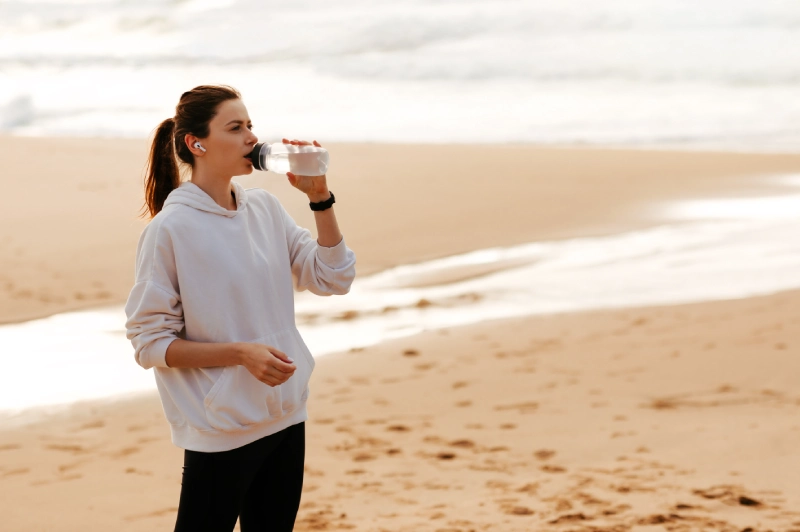
Dehydration can be a serious condition, particularly when it reaches a severe stage. It’s essential to recognize the signs of dehydration early to avoid significant health issues. Symptoms such as extreme thirst, a very dry mouth, and skin that doesn’t bounce back when pinched are initial warnings. More severe signs include lethargy or confusion, which can affect your ability to think clearly or stay awake. Rapid heartbeat and breathing might occur as the body struggles to maintain oxygen and blood flow. A significant decrease in urine output, or urine that is very dark, indicates severe dehydration. Additionally, sunken eyes are a clear indicator of serious fluid deficiency.
If you or someone you know is experiencing these signs of dehydration, it is critical to seek immediate medical attention. Express Medical provides prompt and effective treatment to manage severe dehydration symptoms, offering services directly to your location, whether at home or a hotel. Recognizing these symptoms not only helps in managing the condition more effectively but also prevents the development of more severe complications.
If you have further questions about hydration, or if you’re seeking more insights on maintaining your health during outdoor adventures, join the conversation on our blog or reach out directly via WhatsApp for personalized advice and quick responses. Let’s ensure your adventures are safe and enjoyable by staying well-informed and hydrated!

